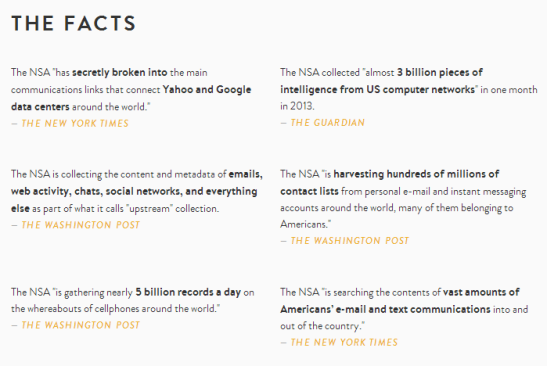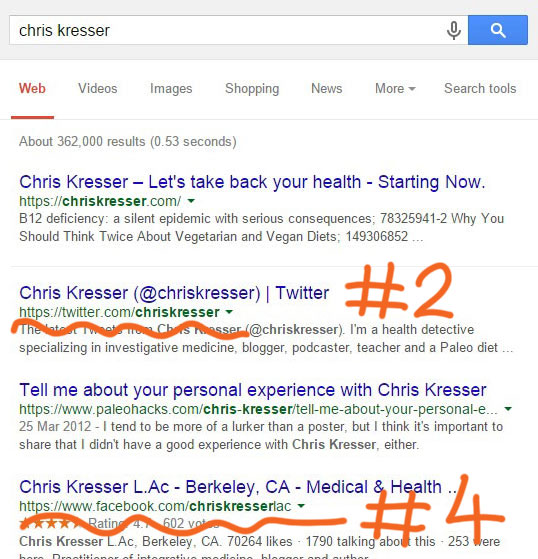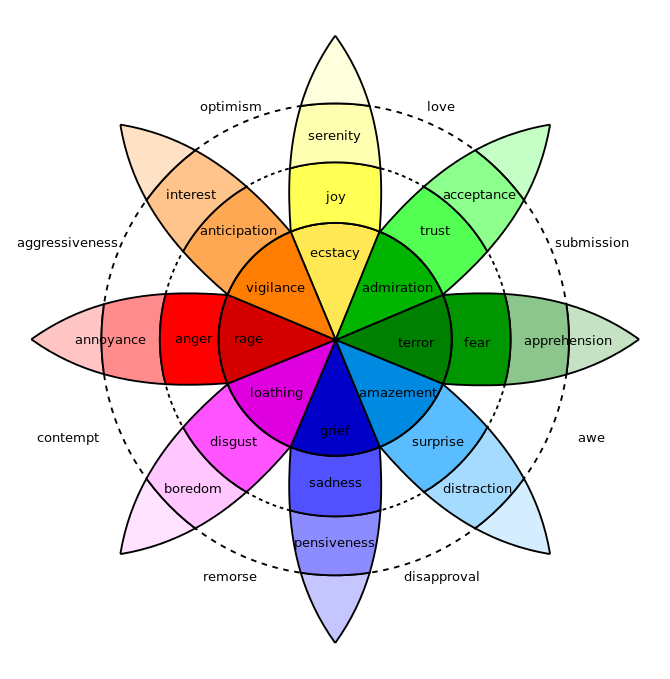
The No-nonsense Guide on Establishing Your Kickass Personal Brand through Social Media
Unless you’ve been living under a rock, or you are a reclusive anti-social person, you probably have at least one social media account. Social media has become the “stuff of the universe” that connects 1.96 Billion people all over the world. Because of its scope, it has become an incredible resource for career development, job searching, networking and much more.
So if you are still using social media channels such as Facebook and Twitter to JUST chat with your family and friends, you are missing out on a lot of opportunities.
Companies from all over the world are using social media to promote themselves, reach out to customers and highlight their brands. They also use social media to look for people to hire and work with.
These days, your one-page resume just won’t cut it. To establish your own social footprint that would help you carve your niche on the Internet, you have to have a blog or a website, a LinkedIn profile, a Google + profile, and a Facebook profile. Heck, you even have to throw in a Twitter and Instagram account for a more “well-rounded” social proof.

With these social media accounts, you can define your personal brand and create solid business and career connections with potential clients and employers.
But what in the world is personal branding?
Personal branding is the science of building yourself as a unique brand. Think McDonald’s or Pepsi, but more YOU.
Just as with traditional brands, you would need to find your unique voice, create your individual standards and showcase your distinctive signature that followers, fans, customers or clients can come to recognize.
Essentially, it is no longer a question IF you have a personal brand, rather, if you choose to cultivate your personal brand to define YOU and to leverage YOU as a brand for your personal gain.
Why is Personal Branding Important
Personal branding has become more and more important as digital audiences also become more trustful of people more than corporations. As technology advances at a breathtaking pace, consumer data is being used (and overused) by corporations, leading to serious breach of user privacy.

As consumer trust is continuously becoming violated, people , especially Millenials, are becoming more and more skeptical of big businesses that push ads on them. This distrust against institutions is compensated by trusting social media where interaction with real people is more prevalent.
According to a Time Magazine article, while Millenials distrust institutions such as banks, the government, the big Pharma, and…er, even Jay-Z (yes, it’s the Illuminati rumor), they are increasingly more reliant on and trustful of social media.
Audiences are now looking for interaction with real humans instead of being considered as “just another customer”.
With personal branding, you can establish your identity and reputation while maintaining a personal level of trust and personalized interaction via social media.
No matter what your purpose is for establishing your personal brand, whether for freelancing or driving trust and traffic to your business, it is important to create one so that you can keep up with the competition on top of opening professional opportunities.
With a well-rounded personal brand you can:
- Land better jobs
- Build better contacts and gain better clients
- Be recognized in your industry
Building Your Personal Branding Via Social Media From Scratch
To better understand the concept of personal branding via social media, let us start by “Googling” your name.

What results came up? It is highly likely that the first ones you see are your social profiles, including Facebook, Twitter, LinkedIn and Instagram (if you have any, of course).
With these results, you must realize that Google pays more attention to these main social media platforms. And if you notice, the more active you are on a platform—say, Facebook—the higher your profile there is ranked in the results.
So if you don’t have most of the mentioned platforms, you should start creating your profiles now. Remember, though, that everything you do on the Internet is a representation of your personal branding.
So how do you start shaping your personal brand?
#1: Define Your Goals
What are you looking to achieve when your name is searched on Google? What do you want people to see?
If you want to be perceived as a professional in your field and you want people to see your achievements, work experience and skills, you should concentrate on creating a solid LinkedIn profile first. LinkedIn is a great way to connect with like-minded people, peers, and potential clients or employers.
If you want to promote yourself or your services and tap on a wider audience, you can try increasing your Facebook and Twitter followers. If you are an artist or if you create your own products, then your best bet is Pinterest.
Here are some goals that you can consider:
- Start your own business—if you want to pursue your entrepreneurial dreams, a good personal branding can make or break you. What people learn about you when they search for you only can be THE deciding factor.
- Stand above your competitors—with a strong personal branding proposition you can definitely stand out from the crowd. After all, there are no other YOU. Highlight your uniqueness and showcase what you can offer that others can’t.
- Sell more—again, if your personal brand is strong, competitive and unique, you will be appealing enough to your audience that people would want to connect with you, follow you and buy your products or services.
#2: Highlight Your Areas of Expertise
What image do you want to present to people? How do you want to be known and what do you want to be known for? With whom do you intend to connect?
Again, the key here is INDIVIDUALITY. You need to know yourself and determine what makes you unique and different from all the other industry experts out there.
Determine your personal interests, your hobbies and the things that excite you.
Just choose 3 things that you are really good at. Don’t go overboard and choose more than that. No, Jacks-of-all-trades won’t cut it.
Keep in mind that your skill sets and areas of expertise will define who you are and will determine what you do. Why is it important? Because these are the things that you will put in your social media descriptions, and the things that will let other people know what you can do in just a glance.
#3: Organize Your Profiles
There is always room for confusion especially when you are maintaining 5 or more social media profiles. Be organized and list down the links of your profiles in a spreadsheet or notepad. If you have more than 10 profiles all over the Internet, it is all the more important to keep a list.
Review your profiles regularly and update them so that they all have your current information.
#4: Make a Strong Positioning Statement
This is your About Me statement, a brief summary of who you are and what you can do. Positioning statements are very important in establishing your personal branding via social media. This is where you tell your potential clients, employers or customers why you are the right person for the job.
Always remember that while the statement is about you, it is not for you but for the people with whom you are trying to connect.
If you’re not sure what to include, try to look around and see what popular people in your industry or niche are using. Do not copy them, but take note of their ideas and presentations.
#5: Use a Consistent Theme across All Platforms
The colors, tone and style you use are aspects of your personal branding and they should be consistent on all your profiles. Do not use yellow on Facebook and blue on your website.

Consult a color palette and choose colors that speak to you and about you. The key here is to make people recognize you and remember you.
Think about how Coca-Cola uses red and white, UPS uses brown and gold and McDonald’s uses red and yellow. Oh, I almost missed Amazon’s orange.
Here’s an excellent article on colors in branding with a cool Color Emotion Guide to help you decide which color scheme will work bet for your own personal brand.
#6: Start Building Your Social Presence NOW
Now that you have your social media accounts, start connecting with your colleagues and start updating. Make sure that your bio and profile details are updated with accurate information and an appropriate profile photo.
Take down status updates, photos, and comments from your timeline that will negatively impact your personal brand.
Make a short list of the topics you are passionate about and start interacting with other people. Don’t embroil yourself in arguments and volatile discussions that could possibly damage your personal brand.
#7: Follow the People and Brands You Love
Social media is called as such because—well, it is meant to be SOCIAL. The whole point is to create social interactions through the Internet. The main purpose is to interact and engage with people you are interested in or brands that you love. So seek them out and follow them.
Do not be scared to engage them in relevant and meaningful conversations. Also, do not sell to your followers and to those whom you follow—not too much, if it can’t be helped, at least.
#8: Show Them The Real Stuff That You Are Made Of
Your ultimate goal is to be known, recognized and remembered. The best way to do this is to establish yourself as an expert or an authority in your chosen niche. Let your knowledge, interest and passion be seen in each and every single post you make. But balance it with caution; you do not want to come off as a braggart and an insufferable know-it-all.
Keep in mind that sometimes it is difficult to retract what has been posted on social media. Even when the post is deleted, you cannot be too sure that someone somewhere hasn’t taken screenshots of it and saved it to the cloud. So always think twice before posting anything.
Final Thoughts
Never underestimate the power of personal branding via social media in helping you attain your personal and professional goals. Make every single post, comment and share count in making an impact within the communities you choose. Update your profiles regularly and participate in meaningful conversations.
By doing these things, not only will your personal brand get more exposure, but you can also position yourself firmly as an authority in your industry.
Would you like to share your thoughts?
Your email address will not be published. Required fields are marked *